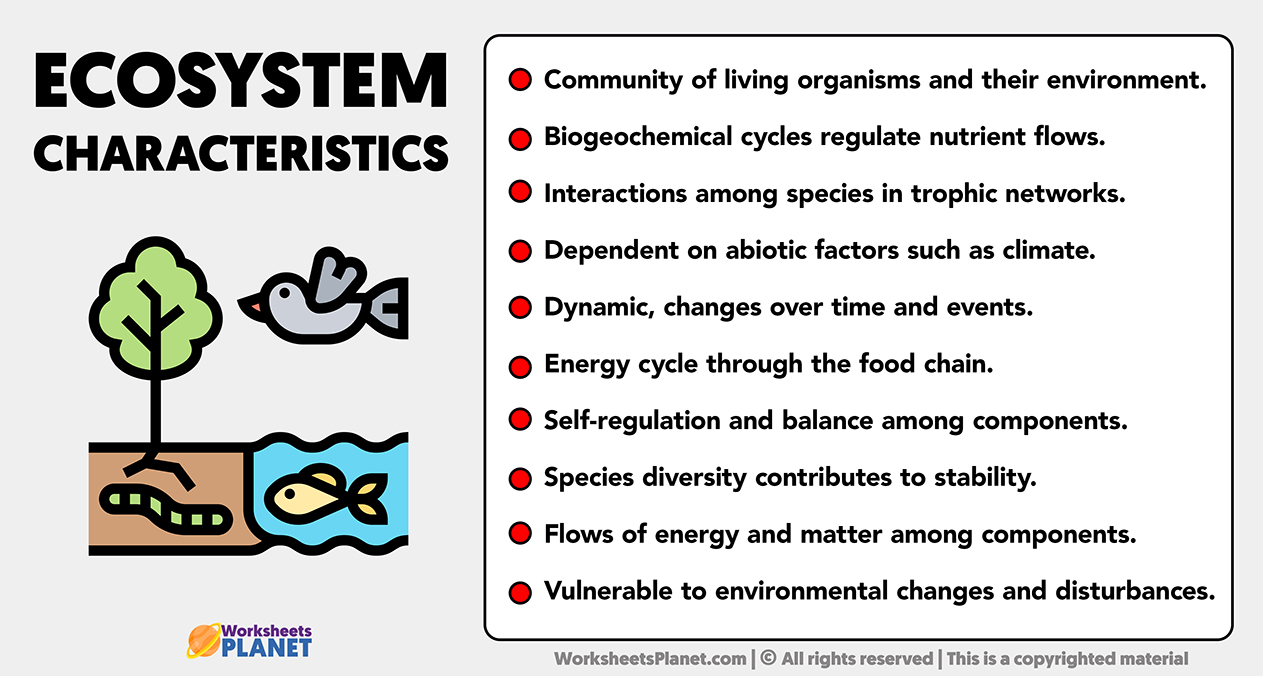An ecosystem is a complex community of living organisms interacting with their physical environment. It includes biotic elements (plants, animals, microorganisms) and abiotic factors (soil, water, climate).
Ecosystems range from small, localized environments, like a pond, to vast ecosystems like a forest. Interconnected through energy and nutrient flows, ecosystems sustain life and demonstrate the intricate balance of nature.

Main characteristics of an Ecosystem
- Community of living organisms and their environment.
- Biogeochemical cycles regulate nutrient flows.
- Interactions among species in trophic networks.
- Dependent on abiotic factors such as climate.
- Dynamic, changes over time and events.
- Energy cycle through the food chain.
- Self-regulation and balance among components.
- Species diversity contributes to stability.
- Flows of energy and matter among components.
- Vulnerable to environmental changes and disturbances.

